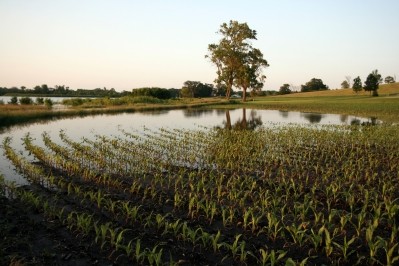Beef analysis results show high dioxin levels
The Food Safety Authority of Ireland (FSAI) said it had reviewed and assessed the results it received following analysis of the samples by a UK laboratory, and reported that the dioxin levels detected were 30 to almost 350 times above the EU allowable level.
However, the agency cautioned that consumers should have no concerns in relation to health risks and retailers are not required to take any action, as exposure from beef is 300 times lower than that posed by the pork contamination.
The Irish Department of Agriculture, Fisheries and Food (DAFF) confirmed that 21 out of 120,000 cattle farms in Ireland have been identified as receiving the implicated animal feed.
It was reported that fumes from using ‘inappropriate’ oil at the Millstream Power Recycling plant in Carlow in the south west of Ireland caused the feed contamination. The oil was used to generate heat to dry dough for the feed, and it is believed that fumes from the oil may have contaminated the feed that was supplied to the Irish farms.
The FSAI said that, as a strictly precautionary measure, it is recommending to DAFF that cattle from the 21 farms should now be slaughtered and not allowed enter the food chain.
Farms that could have potentially used contaminated feed have been restricted since 5 December, said the agency.
EU disposal fund
Meanwhile, the EU has agreed to co-fund the cost of a disposal scheme for animals blocked on Irish farms that have used the contaminated feed as well as for certain pigmeat stocks care that is still held in slaughterhouses or still owned by slaughterhouses.
The move follows the €15m private storage aid scheme for up to 30,000 tonnes of pig meat introduced last week by the Commission.
That EU-funded storage scheme covers meat coming from pigs reared in Ireland on farms that have not used any contaminated feed.
The EU Agriculture Management Committee also backed a private storage aid scheme for Northern Ireland, whereby up to 15,000 tonnes of pig meat can be stored for up to six months.
Compensation
Last week, the Irish government and pork processors agreed a contingency fund of €180m to cover losses by processors and farmers arising out of Irish pork dioxin crisis and to enable companies to recommence slaughtering and processing.
The Irish Association of Pigmeat Processors (IAPP) said the compensation deal was essential to save the industry.
And the Irish Minister for Agriculture, Fisheries and Food, Brendan Smith, confirmed that new controls would ensure that only pigmeat certified as coming from herds that are completely unaffected by the feed contamination problem entered the food chain and was supplied to consumers.
The Minister said all such products would carry a special label, developed by the Irish Food Board, An Bord Bia, which would confirm that they were safe to consume and verify them as having had no association with contaminated feed.
The European Food Safety Authority (EFSA) opinion, issued last week, which stated that Irish pork is safe to eat and posed no serious health risk, should make it easier for the Irish pork industry to restore public confidence in its produce.





